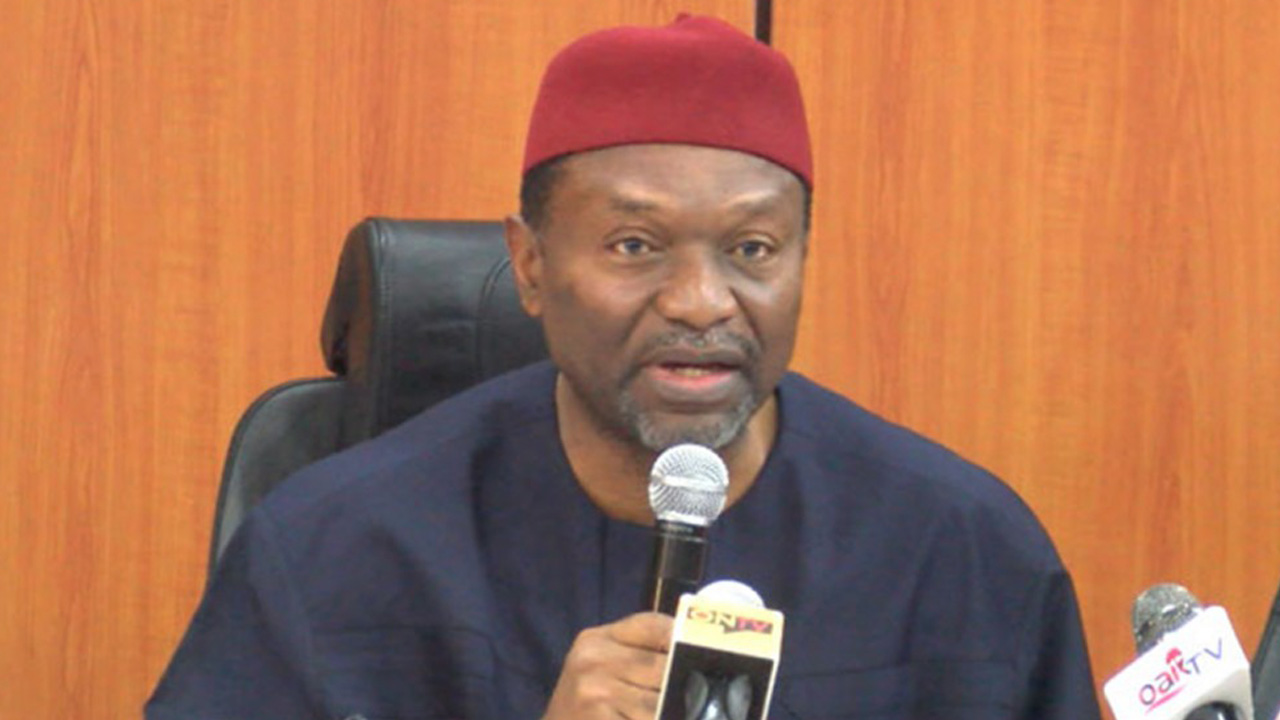
The Federal Government is harmonizing the various frameworks/plans for humanitarian and development assistance to the Northeast region into a costed Multi-Year Humanitarian Development Nexus Plan (2019-2021), which implementation is expected to commence in 2019.
This was disclosed in Abuja on Tuesday by the Minister of Budget and National Planning, Senator Udoma Udo Udoma, at a breakfast meeting organized to appreciate the donors who pledged support for the Lake Chad Region during the Oslo 2 Conference in Berlin in 2018.
The Minister explained that the Plan is being supported by the United Nations Development Programme and other donors and will provide the basis for the harmonization and layering of humanitarian, development and peace support, which will also serve as Nigeria’s Implementation Plan for the Northeast.
“It is hoped that the plan to deepen stabilization and resilience will ride on financial support through a Stabilization Facility to be set up in collaboration with UNDP and all other interested donors and partners,” he stated.
The Minister therefore called on all partners and donors to strengthen collaboration with the government by directing efforts at leveraging and strengthening the capacity of local actors and systems to respond to the needs of the most vulnerable.
Senator Udoma explained that the breakfast meeting was arranged so that the Federal Government can express its appreciation to those who participated in the 2018 High Level Conference in Berlin, Germany (Oslo II), particularly the donors who pledged their support. “This was a very successful conference which resulted in the receipt of pledges of very helpful and significant sums of money for humanitarian and development assistance in the Lake Chad Region. I thank all of you for your continuing support.”
The 2018 Conference was a follow-up to the first Oslo Conference held in Norway in February 2017. The Minister recalled that the 2017 conference was the outcome of growing concern for the humanitarian and other challenges experienced in the North East of Nigeria and the whole of the Lake Chad region, caused by the insurgency in the area.
Giving a background to the 2017 Conference, the Minister said the scale of the problem was such that the countries of the Lake Chad region needed some external assistance to fully address it.
He pointed out that It was for that reason that Nigeria, working together with the neighbouring States, found it necessary to mobilise international awareness as to the humanitarian challenges experienced in the North East Nigeria and the Lake Chad region and the need to scale up support in order to be able to effectively address these humanitarian challenges.
According to him, the two High Level Conferences were very successful, as he recalled that at Oslo 1, pledges of USD$672 Million were received as financial support for 2017 while Oslo II was more successful as pledges totaling US$ 2.17 billion were received for activities in 2018 and beyond for the funding of humanitarian and peace-building/development activities in the region.
He re-iterated Federal Government’s determination to provide durable solutions to the insurgency in the Northeast. “This was why we launched the Buhari Plan in 2016 as the framework for engagement in that region of Nigeria. This framework resulted in the setting up of the Presidential Committee on the North-East Initiative (PCNI) to coordinate the response in the region; the establishment of Operation Safe Corridor to provide rehabilitation and reintegration support to low-risk Boko Haram-associated persons, and, more recently, the creation of the North-East Development Commission (NEDC) to tackle the root causes of the crisis,” he explained.
Stating President Muhammadu Buhari is committed to ending the Boko Haram crisis in the Northeast, the Minister explained that the Federal Government has been working in active collaboration with the Governments of the neighboring Chad, Niger and Cameroon in order to achieve this; and taken together, these concerted efforts demonstrate strong political will in the four countries to address the Lake Chad crisis effectively
“You will recall that in February 2018, Heads of States from the sub-region converged at Abuja for the International Conference on Lake Chad to explore regional solutions that would address the diminishing water levels of Lake Chad. The conference resulted in the endorsement of an inter-basin water transfer to recharge the Lake, which would return the region to its hitherto, buoyant economic activities and thereby address one of the root causes of the crisis”, he stated.
The breakfast meeting was attended by high level officers of the European Union and United Nations agencies in Nigeria including the German Ambassador to Nigeria, Bernhard Schlegheck; his Norwegian counterpart, Petter Kyemprud; European Union Head of Cooperation, Kurt Cornelis; the Resident/Humanitarian Coordinator of United Nations Systems in Nigeria, who was represented by the Head of UN-OCHA, Ms Edem; the acting Country Director UNDP, Ms Betty; and the Regional Director of UNIDO, Jean Bakole, among others



